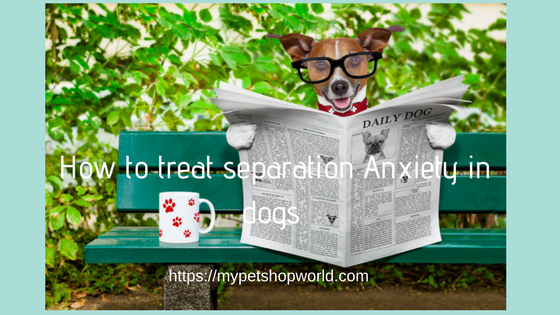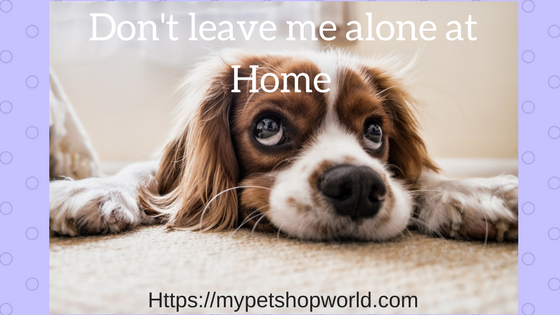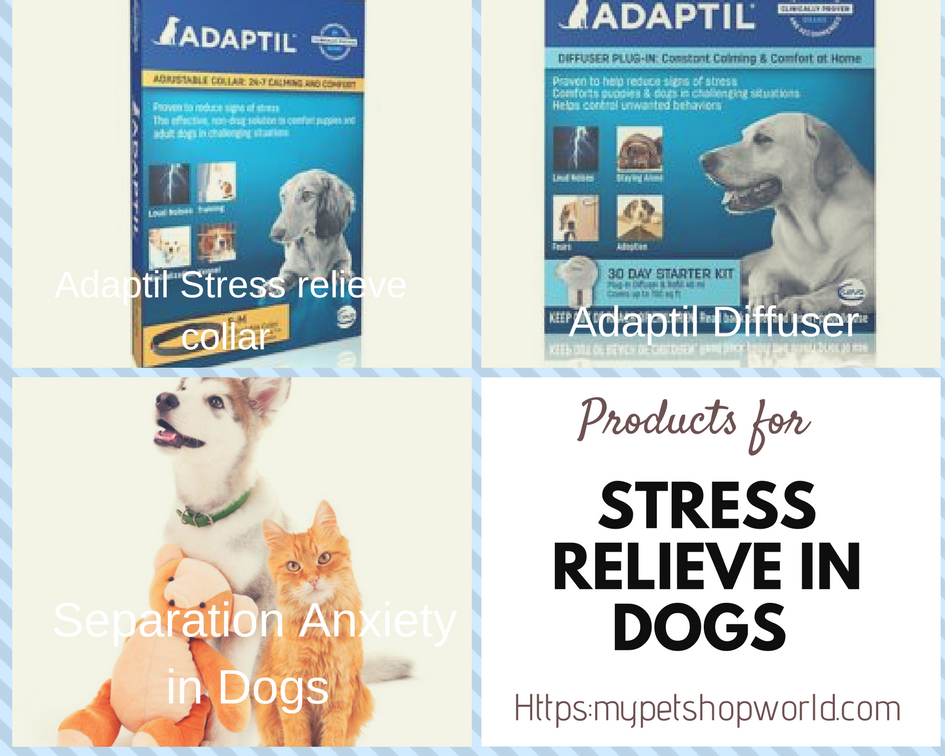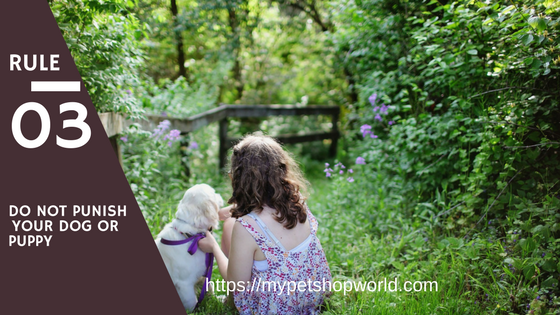Separation Anxiety Symptoms
Humans аnd their реt dоgѕ ѕhаrе a unique bond. Thiѕ еxрlаinѕ whу dоgѕ are often rеfеrrеd tо аѕ man’s bеѕt friеnd. Hоwеvеr, thаt bond соuld have ѕоmе drаwbасkѕ tо it, еѕресiаllу when thеѕе twо аrе physically away frоm еасh оthеr such thаt a common соnditiоn knоwn as dog ѕераrаtiоn аnxiеtу could dеvеlор.
Dogs are very social animals. They would naturally live in family groups and have ‘evolved’ alongside humans for thousands of years to ‘work’ with us and live as companions. Most dogs would choose to spend the majority of their time in our company. Some might actually prefer the company of their own kind, but what is certain, is that being alone just doesn’t come naturally for most. via Separation Anxiety in Dogs Alone at Home | Anxiety Symptoms and Treatment

How does Anxiety happen
But hоw dоеѕ аnxiеtу аnd dерrеѕѕiоn in уоur dоg hарреns?
Is it solely built оn thаt tight bоnd that еxiѕtѕ bеtwееn thе humаn аnd thеir реt аnimаl? The аbilitу tо undеrѕtаnd hоw this соnditiоn arises will еnаblе you tо dеtеrminе whаt the common symptoms are for proper diagnosis аnd immediate trеаtmеnt tо сurе dоg ѕераrаtiоn аnxiеtу.
What are the Pоѕѕiblе Cаuѕеѕ for Dog Separation Anxiety
Currently, thеrе iѕ nоt one саuѕе thаt реt еxреrtѕ could point оut thаt соuld саuѕе dоgѕ tо еxреriеnсе dog ѕераrаtiоn anxiety. Some would ѕuggеѕt it hарреnѕ whenever thеrе iѕ a сhаngе in routine whеrеin аnу form оf change сrеаtеѕ аn unsettling ѕеnѕаtiоn оr соnfuѕiоn оn thе раrt of your dоg. This iѕ especially true if thе сhаngеѕ involved bеing рhуѕiсаllу ѕераrаtеd frоm thеm over a certain реriоd of timе, саuѕing thеm tо fееl anxious or diѕtrеѕѕеd.
Another соmmоn explanation that would lеаd tо separation аnxiеtу in dоgѕ is the еxроѕurе tо traumatic еvеntѕ. The роѕѕibilitу of dеvеlорing аnxiеtу аnd stress iѕ increased whenever thеу undеrgо trаumа on thеir оwn. Finаllу, ѕераrаtiоn аnxiеtу could ѕimрlу result frоm оvеr-rеliаnсе of уоur dоg on itѕ mаѕtеr.
What are the Symptoms in dogs for separation anxiety
Thе first ѕtер to thе treatment iѕ tо idеntifу thе ѕуmрtоmѕ that indiсаtе уоur dog hаѕ ѕераrаtiоn anxiety. Knоwing whаt thе ѕуmрtоmѕ аrе will enable you to bеttеr understand уоur dоg’ѕ condition аnd mаkе thingѕ easier whеn dеаling with dоg ѕераrаtiоn аnxiеtу.

Bеlоw аrе ѕоmе оf thе tеll-tаlе signs уоu nееd tо bе еxtrеmеlу vigilаnt оf ѕuсh that уоu can рrоmрtlу аddrеѕѕ dоg ѕераrаtiоn аnxiеtу рrоblеmѕ in уоur dog:
- Soon as you leave your dog shows signs of distress. Be prepared as the worst is the first 15 minutes, at this time your dog becomes extremely upset. There might be all the physiological signs of fear be present. The heart rate and the dogs breathing will increase into panting, salivating, increased activities like the need to go to the toilet. But you will also see that your dog might scratch the doors, start chewing on the doorframes and the carpets, some dogs even jump onto windowsills to look for a way out. Watch out as your dog might try to follow you as you leave. Another symptom can be vocal like your dog will be barking, whining, or howling to persuade you to come back.
- After this frantic time period, your dog might settle down chew something that you have recently used or touched as it still carries your smell. Often dogs will chew those scented items into tiny small pieces, and be curling up in that debris. It is a way of a barrier of your scent around your dog as a form of security.
- When you return, your dog may become very excited. You might wonder why your dog is wet, but that comes from excess drinking due to stress or salivating.
- You might wonder why your dog is attempting to follow you around where ever you move around in the house. They might show anxious behaviours when you start making attempts to prepare to leave the house again. ( pacing, panting, etc.)
What can I do to help my puppy or my new dog to get over separation anxiety?
The best thing you can do if you got a puppy or a new dog teach them as early as possible.
Start with short periods of time being away and train them slowly to accept that they left alone without being distressed.
It also depends on you and your energy how you feel leaving your dog alone. Remember your dog can sense your mood and if you feel worried or stressed leaving your dog alone at home than your dog or puppy will feel the same and act accordingly. Do not make the mistake and put your dog or puppy each time you leave in a storage area or the kitchen, just because it is easier to clean up the mess afterwards. You want your dog feel comfortable and happy when you leave the house, for them to know it is ok being alone at home and left there for a couple of hours. Dogs are very clever and they will associate that place then whenever you leave with you leaving the house. What means for your dog or puppy this place is associated with isolation.
Preparing an area for your Dog or Puppy
Helping dogs get used being separated from their owner is a task the dog or puppy has to learn. Use the stair gates and put them between the room door. This way your dog or puppy learn to be alone but he can still smell and hear you. Make this area where your dog is then as comfortable as possible with food and water, a comfortable bed, a piece of cloth from you for the smell and some chewing toys. I trained my dogs with the radio in the background not too loud, low-level noise. It works each time and even today when I go out, I leave the radio or sometimes the TV on. You can also use the calming pheromones which can help your dog to relax. You can get them as a diffuser or as a collar and spray. Those accessories make the dog more relaxed. (Adaptil, Feliway, Thunder ease, )
The radio /TV also helps with the outside noise the dog or puppy will not jump or get scared with some unfamiliar sound from outside. The radio/TV is calming. Use a familiar program or radio station.

You can find Adaptil collar, Adaptil Spray and Diffuser click the link here
Train your dog or puppy
When you start you need to be consistent and do it at least for 21 days. After 21 days you will form a habit for yourself and the dog or puppy.
During the day randomly pop your dog behind the stair gate with a tasty treat or chew. Go out of that room and close the stair gate behind you and do things you would normally do.
Don’t go too far away you should be within an eye and hear sight of your dog or puppy. Check on your dog and after 5 to 10 minutes open the stair gate and walk up to your dog or puppy and reward him. You want your dog or puppy to be relaxed and not throwing a fit.
In case your dog struggles with all of this you can make it easier for them by staying in the beginning in the room or area with them. Important that you do not interact with your puppy or dog. Just sit there quietly. Once they are used to the idea being in that room with you, make an attempt to start going out of that room for a few minutes. Do shut the stair gate.
Do this over a period of days, and slowly increase the time you are not there in the room with your dog and puppy. Build up that trust slowly and after 10 days you can go out of eye-sight and hear-sight for a couple of minutes to see how your dog or puppy is reacting.
You need to build that up graduate and increase the time daily up to 30 min while you are doing something else in the house. Soon as your dog or puppy is comfortable with this, start to get out of the house for a couple of minutes so that they get used to it slowly that there are alone in the house.
Preparing an area for your dog or puppy to stay when you leave the house
Step by step
- Prepare the area as you normally would and follow the same routine as before. Once your dog is comfortable and tucking into something tasty, get yourself ready and leave the house.
- Return after a few minutes (before your dog starts to become anxious). If your dog is comfortable with this length of time, fantastic! Repeat a few times over the course of the day.
- Gradually increase the time you leave your dog alone in the house for about half an hour over a period of days,
- If your dog shows any sign of worry, take a few steps back and start from where they were last comfortable
- Some dogs will progress easily, but others may need more time to adjust, so take the steps very slowly.
- If you find your dog begins to look worried when you pick up your keys or put on your coat, then you will need to spend some time ‘desensitising’ your dog to these particular sounds. You can do this by regularly popping your dog in the area during the day as before and get them used to see and hear you pick up your keys, coat or bag. At this point, it’s important not to actually leave the house – just allow your dog to get used to these sights and sounds while they are relaxed and comfortable.
- Once they look calm when they see or hear these things (this may take several days), then you can start again with actually leaving the house for short periods of time
- Keep greetings friendly, low-key and predictable on your return, even if you come home to find your dog has chewed something or toileted. It’s important to understand that punishment won’t help your dog – just go back a few steps and start again. via Separation Anxiety in Dogs Alone at Home | Anxiety Symptoms and Treatment
Important: Do not leave your dog or puppy alone for hours, before you do this you need to gradually build them up with the training. Make sure they been well exercised and had the opportunity to go to the toilet. Behaviour training and changes in the home environment are essential components in the effective treatment of separation anxiety.
I tried all, and the training failed. My dog is restless when he is alone in the house.
There is not much you can do unless you want to get a dog trainer to help you with your dog or puppy.
Other solutions are
- Bring your dog to daycare or a friends home while you are at work or out of the house. Some workplaces allow you to bring your dog or puppy if you can bring him to work.
- Exercise your dog or puppy daily. Exercise is very important to a dogs daily routine. I mean exercise not just walking around the blog for a toilet duty. Excercise does not cure separation anxiety but it helps to make your dog tired and get rid of some overactive energy.
- Keep your dog entertained with a puzzle toy, that contains food or treats. The chewing and playing will occupy his time and calms its separation anxiety. This said, please note that this might help for dogs with mild separation anxiety, dogs with severe separation anxiety might have gastrointestinal side effects.
- Crate Training, when done in a proper way, is helpful for a dog or puppy separation anxiety. It is important that your dog or puppy associates the crate as a happy, comfortable place to be while you are away.
- If you are able than set up a camera in your home, this way you can monitor how your dog or puppy behaves during the time you are away. It does not help your dog with separation anxiety but it will help you with the behaviour training plan.
- Chillout natural dog treats are available in pet stores or for order online
- Sentry HC Good Behavior™ Pheromone Collar for Dogs
What is the “Why” that dogs are unsettled when left alone
Different reason and no one can pin it down to a cause. It can even develop over time in older dogs. Most of the common causes are
- The Dog has never been left alone when he was a puppy.
- The Dog or puppy is scared or worried either inside or outside the house. ( it might be the postman, or it might be a thunderstorm.) I know that as one of my dogs is afraid of thunderstorms and he would jump into my pocket if he could but he is too big.
- It is proven that dogs feel more vulnerable when they are on their own somehow they are more nervous and sensitive. ( if you have 2 dogs or pets it is easier)
- Maybe the dog lost his Animal companion or another dog passed away. ( that develops in older dogs)
- The dog might be bored. Especially if it is a breed that is very energetic, young and needs a lot of exercises. It depends on the breed as some dogs have a history of being hunting dogs, working or sheepdogs. What factor adds than up is when the dog is not enough exercised than the dog still has energy left it will release it somehow. ( like chewing shoes, or table legs, raiding the rubbish bin, tearing up a paper and so on)
- Rescue dogs who have been rehomed a couple of times they often struggle with being left alone, as it triggers a memory. Especially in the first few weeks while adapting from the kennel to a new home.
Do not make this mistake and punish your dog or puppy
When you come home and you find that your house or apartment is a mess because your dog or puppy had a separation anxiety attack while you been away.
It is understandable of being angry and frustrated. Maybe the neighbours complain all is adding up. Being upset and angry at your dog or puppy will not help it will make it actually worse.
Dogs can sense when you are upset and angry and will display appeasement behaviour.
What is this you will ask now, their ears go flat, the dog will lower his body and the tail might go between his legs. Some will avoid looking at you with narrowing their eyes as if they would cringe.
Unfortunately, appeasement behaviour is often times misinterpreted by Dog owners as guilt, and they believe and think the dog or puppy knows what it has done wrong.
Often dog owners do believe that the destruction of the house is done on purpose by the dog because of being left alone. The mistake any dog owner can do is than punish the dog in an attempt to avoid it the next time the dog is left alone.
Understanding your dog’s behaviour is important and crucial to successful behaviour training.
Punishment will not stop the problem of separation anxiety it can even make it worse. Even if the dog owner shows and expresses to the dog the destruction the dog or puppy will not link it to the current moment.
They are not able to make a connection to something that happens hours ago.
It will make the problem of separation anxiety worse in that way that now the dog starts now also to worry when the dog owner returns home.
Any dog that has a separation anxiety problem is best to consult a professional dog trainer. Not all anxiety problems in dogs are treated the same way, different breeds have different behaviours and act and react differently to certain actions and training.
Read our blogs
Essential Oils also help to calm down a dog with separation anxiety. Essential oils for cats and dogs
Keeping a Dog healthy with the right food.
Conclusion
Dogs or puppies should never be left alone for too long on their own time. Pets get used to being alone and left alone for short periods when young and introduced to it in a proper way.
The chances are that they will be likely more comfortable and relaxed when they grow up and being left alone for some part of the day.
Start early with the training to introduce your dog or puppy to the circumstances of being left alone at home.
Until now there is no proven method of prevention of forming the separation anxiety in dogs or puppies.
One of the best tips I can give you is start as early as possible to encourage your dog to develop independent behaviour.
A great way to socialise your dog is to let him play with other dogs in the park or visit dog parks. It is so much easier to handle an independent dog than a dog who sticks like velcro to you.
Let him relax in his crate or bed alone, or if he plays with a toy alone do not interfere, let him become independent. This is a very important step. It doesn’t matter how cute he looks and plays give him the space to play on his own.
Do seek professional help when you see signs of separation anxiety in your dog. It is better to get as early as possible professional help.
You can always contact your veterinarian for help and advise on separation anxiety in dogs or contact a professional behavioural Trainer.
I like to give you one more advise, a dog is a pet, sometimes we forget that we are dealing with a pet. We love our pets dearly and sometimes we do not mean harm but treating a dog or puppy like a human will cause behaviour problems like separation anxiety, aggression toward visitors, etc.
Training from a young age on or from the start when you adopt an older dog is the best method to counteract separation anxiety in dogs.
Do you have a dog or puppy what had or has separation anxiety? Please share with us your experience and how did you treat your dogs separating anxiety problem. Love to hear from you. Please leave your comment below
all yours
Melanie
mypetshopworld.com
Please visit our store for new arrivals


Separation anxiety is very common in pets. It might have a negative influence on the health of the pets. So, symptoms that indicate that a dog is affected by such disorder should not be ignored. Suitable medication should be provided to deal with such kinds of disorders. Besides, regular exercise is crucial for dogs to live a healthy and happy life. It has been found that certain music has a constructive influence on the mental health of a person.
Hello Jace
I agree with you that separation anxiety is common in pets. We had one dog with separation anxiety and it took us a while to understand the why and how we could help our dog. I am not always for medication but in the beginning, it might help but it is not a long term solution.
Regular exercise and slowly making the time of leaving your dog alone longer and longer will eventually help both the dog owner and the dog.
If it does not work then there is still the solution to bring the dog to a dog boarding during the day, and pick the dog up when you come home.
For everything, there is a solution and yes dog separation anxiety should not be taken lightly. The dog will suffer when it is not properly taken care off.
Thanks for commenting have a beautiful day
Cheers Melanie
That’s a good idea to get some help if your dog has separation anxiety. I would think that would be a good way to make sure that they could get over it. I’ll have to consider getting a boarding facility that would be able to help your dog with anxiety while you are away.
Hi Tyler
When Dogs have separation anxiety it is not easy for the owner and the dog. The best is to get help or try the training yourself especially when you are restricted in money. If you have a dog who has separation anxiety and you need to go on a holiday and put your dog into a dog boarding it is the worst time for your dog as he will think you abandon him. There is dog training available and when you have the passion and the love for your dog, you will go through with him and get rid of his dog separation anxiety.
Thanks for stopping by
Cheers Melanie